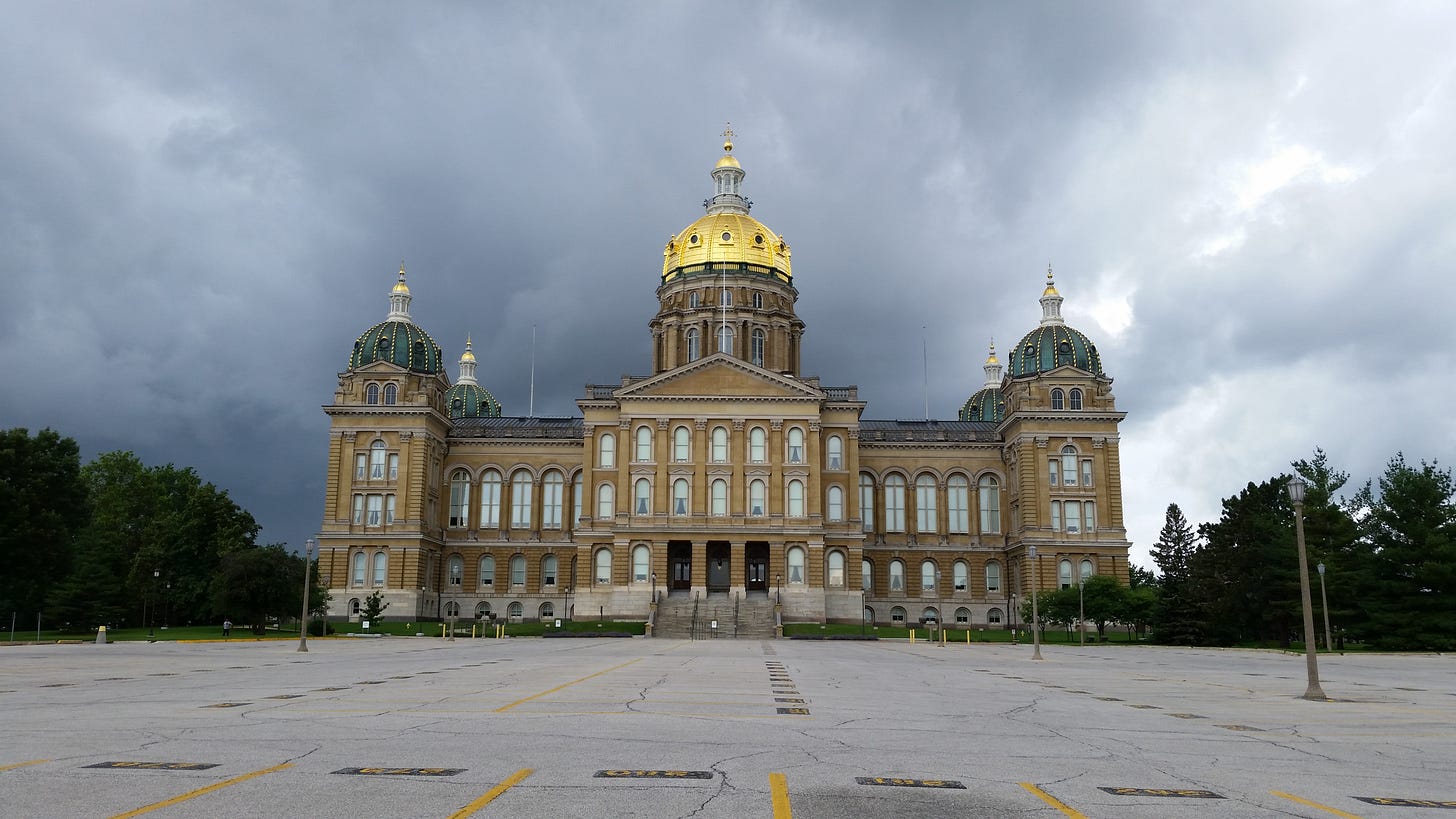The Iowa Legislature in 2023 was a mess, but there is hope
We cannot pretend that this was a good session for Iowans or Iowa’s democratic traditions, but neither should we despair. The fundamental mechanisms of democracy are still working, if haltingly.

What happened with our most recent legislative session? It’s hard to tell by listening to our politicians. To hear the Republicans tell it, you’d think that the clouds had parted to reveal Iowa as the new, shining City on a Hill. But the Democrats would give you mostly the rumbles of fascism and hellfire.
The truth is usually somewhere between the extremes. Looking at this session’s products and conduct, though, it’s much harder to swallow the Republicans’ sugar-coated story.
Let’s start with what bills passed. The ones that made the papers were generally bad news for most Iowans. The session started with the unpopular voucher bill — yes, the same voucher bill that worried several rural Republican lawmakers so much that they sacrificed their political careers opposing last year’s more modest version. Then the GOP overturned decades of work by prior legislatures on our state government’s structure. Instead of a government reorganization thoughtfully shaped by our elected representatives, we have a law written by an out-of-state consultant with no significant legislative input. Other bills include numerous anti-trans bills, book bans, and a bill to effectively strip the state auditor of the ability to conduct audits. Dozens of other state auditors have said the last could jeopardize Iowa’s bond rating and access to federal funds, but GOP lawmakers passed it anyway.
Noticeably missing: any bill to address the state’s brain drain, water quality problems, over-reliance on ethanol subsidies and mandates, or the ongoing depopulation of Iowa’s rural counties.
On the brighter side, there were many boring bipartisan (“non-controversial”) bills passed with little fanfare. Iowa passed a data privacy law, clarified succession of the governor, and adjusted laws ranging from car rental deposits to adoptions. These bills generate little attention, and if you don’t notice them, it’s easy to forget that Iowa’s Legislature can still be a relatively reasonable, functional law-making body.
On the other hand, how the Legislature operated this year was a travesty.
That voucher bill? It passed because House Republican leadership created a special mechanism to avoid the usual checks and balances required for spending bills. Then House and Senate Republicans rushed it through to minimize media exposure, public comment, and public pressure on lawmakers — which was still so intense that it brought down the legislature’s email servers. Other laws were passed in late-night sessions, with limited debate, and with little or no concern for what public comment there was.
Which brings us to another major problem of the session: The process was closed. To work properly, a government of the people must be open to the people and responsive to the people’s input. It cannot hold sham hearings that only allow one side to speak. It cannot refuse to answer questions from the press by banishing them, from the public by refusing to participate in forums, or from other lawmakers by simply clamming up. It cannot make legislation and decisions behind closed doors or delegate its decisions to consultants. It cannot reject minority-party participation and amendments out of hand. Those are all the tactics of politburos, not democratic parties. But they all happened in Iowa this session.
And yet the Legislature allowed meaningful bipartisan input on the child labor bill, property tax changes, and other matters, and it stepped back from the power grab of further politicizing Iowa’s judiciary. These may provide cold comfort, but they are still real accomplishments in a year like this one.
We cannot pretend that this was a good session for Iowans or Iowa’s democratic traditions, but neither should we despair. The fundamental mechanisms of democracy are still working, if haltingly. And they are run by real people —mostly people who need to reapply for their jobs next year. So this year, make sure you tell them what they did right and hold them accountable for what they did wrong. Because it’s only a government by, for, and of the people if we keep making it one.
Kelcey Patrick-Ferree and Shannon Patrick live in Iowa.
Originally published in the Iowa City Press-Citizen on May 11, 2023.

